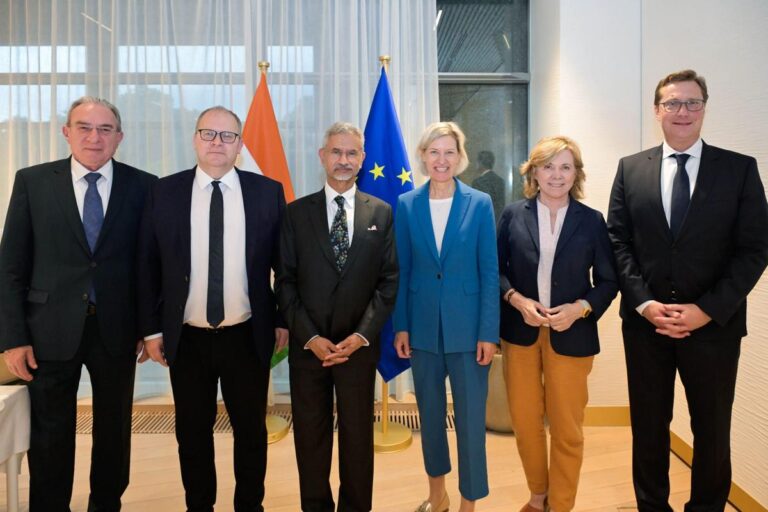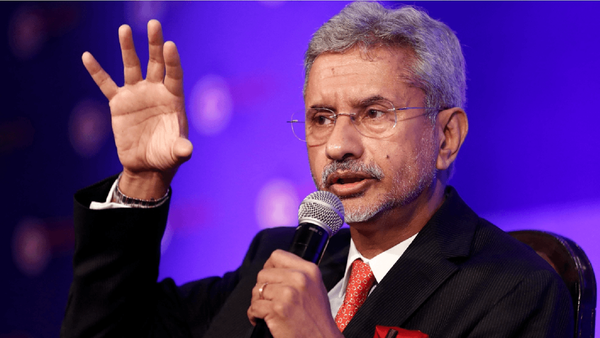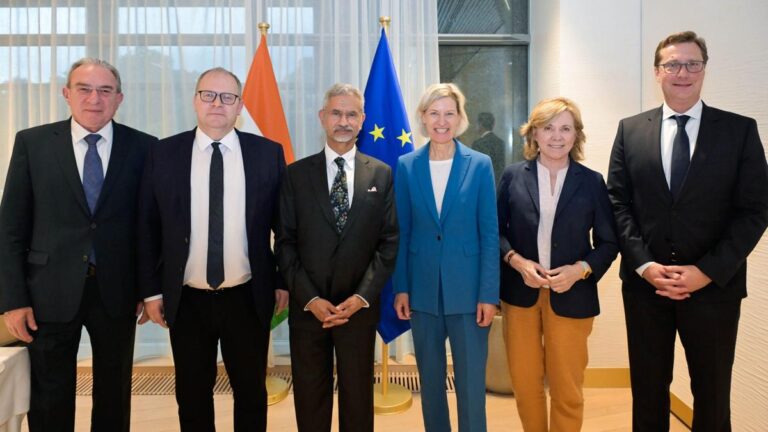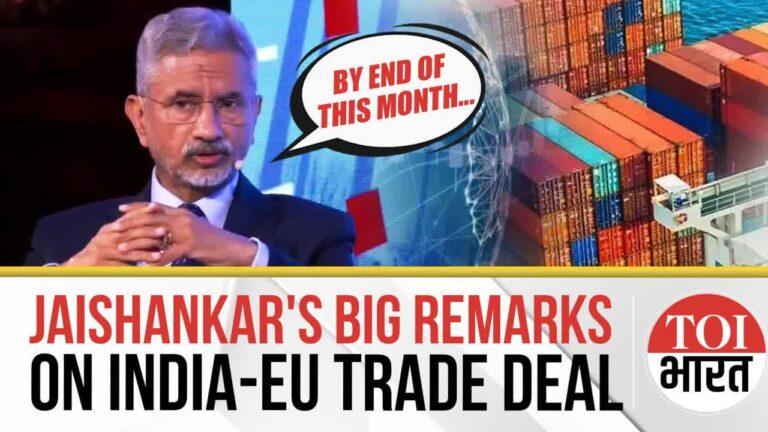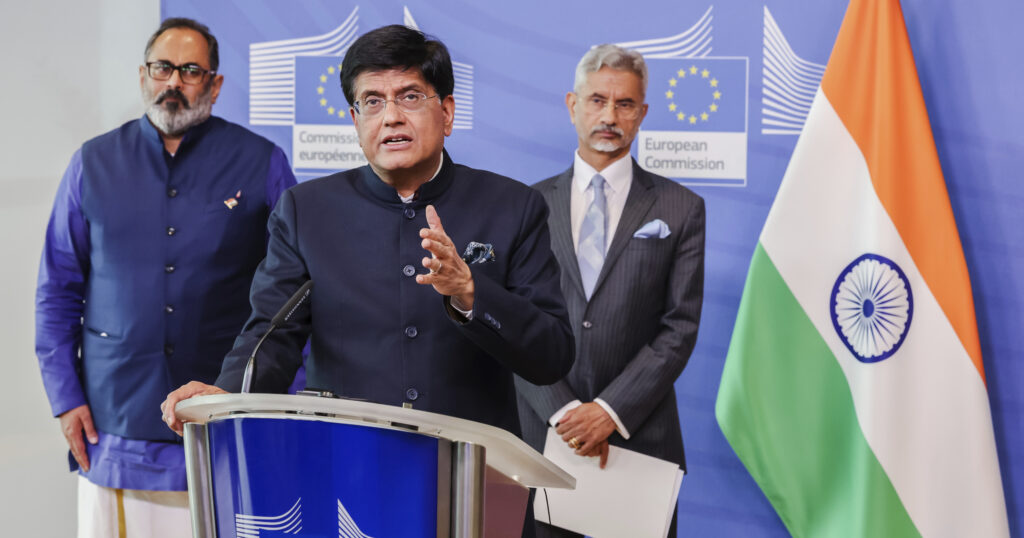
Something unusual has happened at the 13th World Trade Organization ministerial conferencewhich ended in Abu Dhabi in March. For once, China was on the same side as the United States and the European Union on commercial subjects. This does not indicate an ease in tensions between Western economies and Beijing. Instead, American, European and Chinese negotiators have only been briefly associated with the forces to fight against a common adversary: India. To say that New Delhi’s positions at the top were a hard line is an understatement. Indian representatives have obstructed the most key negotiations, including a reform of fishing subsidies; extension of a moratorium to avoid prices on digital services; And the conclusion of an agreement to stimulate foreign direct investments in developing economies.
The official explanation of India for his tenacious opinion was apparently simple – New Delhi does not want to see problems of non -trame, of the fight against overfishing to facilitate global investment flows, arise in trade negotiations multilateral. It’s strange. In Abu Dhabi, India “offer to the world“Was hardly a basic commercial problem: the country sought to promote the interface for the adoption of unified payments, its local financial mechanism for sending funds. Leaving aside the frustration of the negotiator, scratching under the surface of the official discussion points of India depicts a disturbing image for European relations with emerging economies. New Delhi’s determination to defend his own interests in Abu Dhabi illustrates the increase in world resentment towards EU trade policies. Other development economies, also frustrated by the EU approach, could soon follow suit, fueling the risk of commercial wars between Europe and the world of world.
The first major agreement that India has rejected was a reform of fishing subsidies aimed at preventing overcapacity and, therefore, overfishing. The opposition of India to the agreement comes in part from the internal interests (not surprisingly, Indian fishing companies like subsidies). However, Indian fishermen are Far from being overwhelmed with state fundssuggesting that the obstruction of New Delhi did not really consist of supporting its national fishing industry. Reading between the lines, India’s position probably aimed to report dissatisfaction with the recent adoption by the EU of green commercial measures, such as prices on Imports with high carbon intensity and exchange rules to deforestation.
India is hardly the only emerging economy to have scruples On the use of carbon border taxes and other trade measures to combat climate change. According to numerous development economies, the EU is “greenwashing” by adopting protectionist prices under environmental disguise. In Abu Dhabi, Indian negotiators have sent a clear message: in the foreseeable future, India will oppose the adoption of multilateral trade measures to protect the environment. For New Delhi such rules are only “biases, discrimination and injustice”, because trade and the environment are “two distinct problems”. Beyond its negative environmental impact, this position arouses problems for the EU: green commercial measures forming a key element in the increasing toolbox of Brussels to fight climate change, tensions with emerging savings on Green trade rules can only increase in the coming years.
The second key refusal of India focused on the extension of a global moratorium to ban prices on digital services. Until an eleventh hour agreement was won, an ad hoc coalition made up of India, Indonesia and South Africa opposed the extension. The stay will be short; The new moratorium last until 2026 (When the next ministerial summit of the WTO takes place). Leaving the Moratory Expire would have huge consequences: calling a friend abroad on Zoom or broadcasting a film on Netflix through borders could be delivered at a high price for consumers in the form of commercial prices.
On digital services, India’s position at the WTO conference has an embarrassing second truth for Europeans: digital services Consult to become a new commercial battlefield in the coming years. The fact that commercial lines will increasingly be non -tangible exports is not surprising. Digital services represent About 15% of the world economyA part that could reach around a third by 2030. If India or other emerging economies want to retaliate against, let’s say, the Green Trade Measures of the EU, threatening to derail digital trade could well be a powerful weapon – Europe (including the United States Kingdom) is the world biggest exporter digital services.
Faced with a reaction on the rules of the green trade and fearing the emergence of new commercial wars on digital services, the EU can be tempted to follow the obvious strategy of engaging with emerging economies to appease tensions. However, India’s third refutation to Abu Dhabi has a final storage for Europeans. New Delhi has rejected the adoption of a global investment agreement to stimulate direct investment flows thanks to a reduction in administrative formalities. The world well-being gains of this agreement could be massive, potentially reach $ 1.7 billion (An amount equivalent to the size of Australian or South Korean savings). The agreement was approved By 125 WTO members and would mainly benefit development savings, which generally have more difficult commercial environments than advanced savings. Yet India – the supposed main voice from the world of world – still chose to oppose the agreement, arguing that it was not a commercial question.
New Delhi’s bizarre position on the investment agreement highlights a third lesson for Europe: developing economies is becoming more and more fragrant on commercial subjects. This is new: up to a few years ago, the WTO negotiations have opposed advanced savings largely to those in development. This is no longer an applicable framework, because emerging markets are increasingly willing to defend their own interests. It is certainly a good thing, but for the EU, this development also means that vague To talk about commitment With the world South will not be enough to appease trade tensions. The point to remember is clear: EU’s commercial strategy towards emerging economies must become much more granular and specific to the country than it is currently, because the adhesion of a single development economy no longer guarantees the agreement of others in multilateral environments.
Until a few years ago, the WTO negotiations have opposed advanced economies largely to those in development. This is no longer an applicable framework, because emerging markets are increasingly willing to defend their own interests
In the Brussels power corridors, the atmosphere is all about policies to the test of the United States before a potential return of Donald Trump to the White House in 2025. In such a scenario, the trade rows between the two Sides of the Atlantic seem almost certain. However, this risk has so far only been hypothetical. On the other hand, the position of India at the WTO suggests that trade tensions between Europe and emerging economies are almost sure to increase in the coming years, with the difficult position of New Delhi in Abu Dhabi, only An imminent commercial battle taster. Preparing a second term of potential Trump could well be the priority of the day in Brussels, but it should not distract European decision -makers of the next – and difficult to appease – trade rows with emerging savings.
The European Council on Foreign Relations does not take collective positions. ECFR publications only represent the views of their individual authors.
